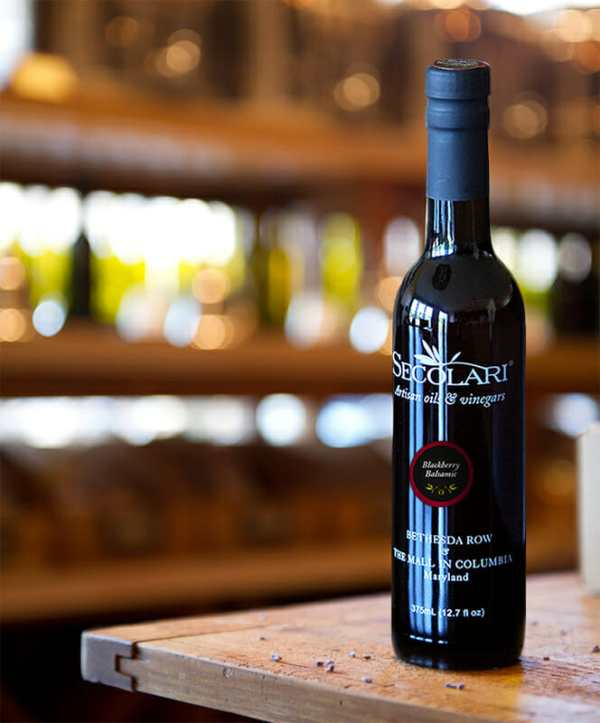Long ago, Henry III, the Holy Roman Emperor, was gifted a bottle filled with vinegar. This was in 1046, the first written reference ever to balsamic vinegar. Once only known to the Emilia-Romagna region of Italy, it is now known worldwide for its distinctive dark and syrupy color as well as its rich flavor.
You don’t need to go to Italy to get balsamic vinegar either. You’ll find it in your local supermarket and even more easily, online at your fingertips. Traditionally, balsamic vinegar was only made in Italy, but California is also home to some exceptional bottles of it.
So, how do you know which one to choose? Italian or Californian? Traditional or aged? Keep reading to learn more about what balsamic vinegar is made from and how you can use it like a professional chef in your kitchen!
The Scoop on Balsamic Vinegar
Balsamic vinegar should only contain one ingredient: grape must. It differs from wine vinegars though in that the juice of these grapes is not fermented. It’s also made from a sweet white grape varietal called Trebbiano.
The grape juice is slowly simmered within the confines of a copper pot until it reduces by anywhere from 35% to 50%. The reduction is then placed with a bit of aged vinegar to kick off the process in oak barrels for aging. With every year, some of the vinegar evaporates. As it does, the remaining vinegar is then transferred into a smaller barrel of a different type of wood. The woods range from mulberry, cherry, juniper and more and each one that is used adds another layer of flavor for greater complexity. The vinegar ages and becomes a concentrated, thick, sweet, and dark concoction.
Traditional Balsamic must follow this process and pass a stringent taste test to bear this label. In fact, all good balsamic vinegar must uphold esteemed standards to be sold in the US. All balsamic vinegar is aged, though more commercially affordable versions tend to skip the entire roster of barrels, opting only for oak barrel aging instead. While it isn’t the same as the kind of balsamic that has been lovingly moved from one type of wooden barrel to another, it is still a beautiful choice for every home cook.
That brings us to what you can use balsamic vinegar for in your kitchen!
How to Use Balsamic Vinegar in Your Kitchen
Before you start using balsamic vinegar in your home, you should know about the basic aging groups you’ll find.
When balsamic vinegar is considered young, it’s aged 3 to 5 years. You’ll find this style works best when you make homemade salad dressing or to make sauces and marinades. You’ll also find it’s purely enjoyable for dipping sauces to be served with bread and vegetables.
A mid-range age is anywhere from 6 to 11 years. You’ll notice it has greater viscosity. It’s also incredibly versatile. Add it into your sauces at the end of the cooking time. Put it in marinades or mix it with a condiment like mayonnaise for making a more sophisticated sandwich. You can use it in risottos and pasta dishes for added depth too.
When balsamic vinegar is well-aged, which could be from 12 years on up to 150 years (or longer!), you will mostly want to add it as a finish to your dishes. The reason is because it should be adored on its own. Well-aged balsamic vinegar is ideal for flavoring meats from beef, chicken, and veal to fish. It’s also perfect for a charcuterie plate filled with fruits and cheeses. In particular, strawberries, pears, and peaches are sublime with it. While it might be among the more pricey options, you only need a few drops to bring out the flavor of your food.
You might want to try making a simple dish of pork chops and spinach finished with a balsamic reduction, create a Caprese stack with a mere drizzle, or make a fresh spinach and strawberry salad with a homemade balsamic vinegar dressing. It’s fun to get creative in the kitchen and use the bold and complex flavors to bring restaurant-style panache to your kitchen.
Where to Get the Best Balsamic Vinegar
If you can’t splurge on a bottle that’s been aging since before you were born, there are many more affordable options that are still impeccable. The trouble with going to the store though is that you may find unwanted additions to your balsamic vinegar. When the quality is low, you’ll see sugar has been added to counter the bitterness. You can get the real deal even at lower prices though so don’t be fooled. You should only see ‘must’ or ‘grape must’ listed as the ingredients. If you see anything else, take a hard pass.
Secolari is a fine choice that brings quality at an affordable price. You’ll find Italian balsamic vinegar prepared in the traditional way with 18 years minimum of aging, imported straight from Modena and adhering to the CSDWTEA guidelines. You’ll also find California balsamic vinegar produced and maintained in accordance with The California Safe Drinking Water and Toxic Enforcement Act.
Choosing Secolari means you’ll never compromise on flavor no matter what you make in your kitchen. Taste the difference today!
